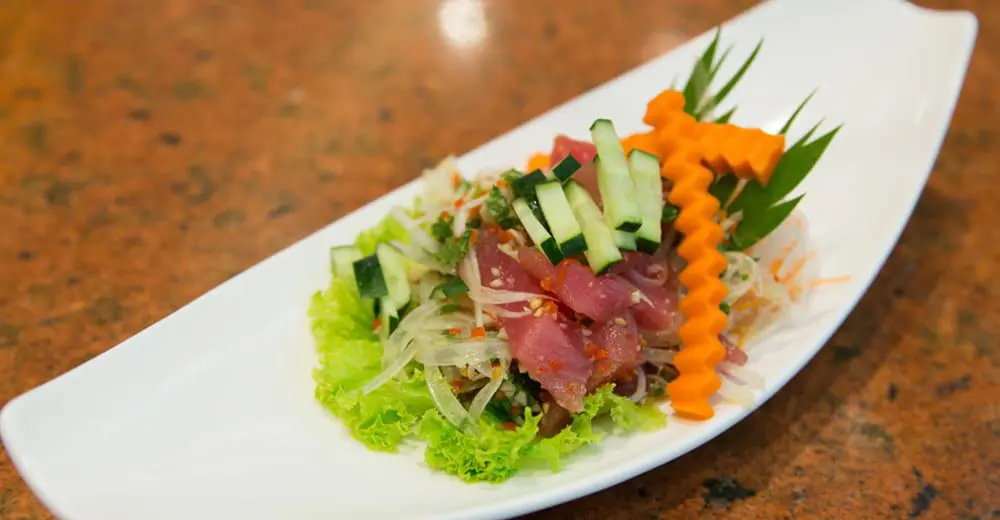Food critic Scott Haas is back and this week he sheds some light on some of the best vegetarian restaurants across regional Japan.
Like India, and other nations that developed under centuries of Buddhism that prohibited eating animals, Japan has a reverence for vegetable-focused menus that are often elaborate, more flavorful than meat, and very creative.
That’s great news for travellers whose personal or religious preferences define what they can or cannot eat.
From Halal to Kosher to Buddhist to Hindu to shellfish allergies to those who decide on their own not to eat meat (or fish), Japan has great choices that are a lot of fun.
In Kyoto, a traditional center of governance and worship, there are several tofu restaurants near the base of the Kiyomizu-dera temple complex.
Lunches offered at any one of them are good, not too pricey, and offer simple dishes like creamy tofu that you can mix with soy sauce and fresh scallions; yuba, which is tofu “skin,” and has a wonderful, thin texture; and, warm bowls of tofu “soup.”
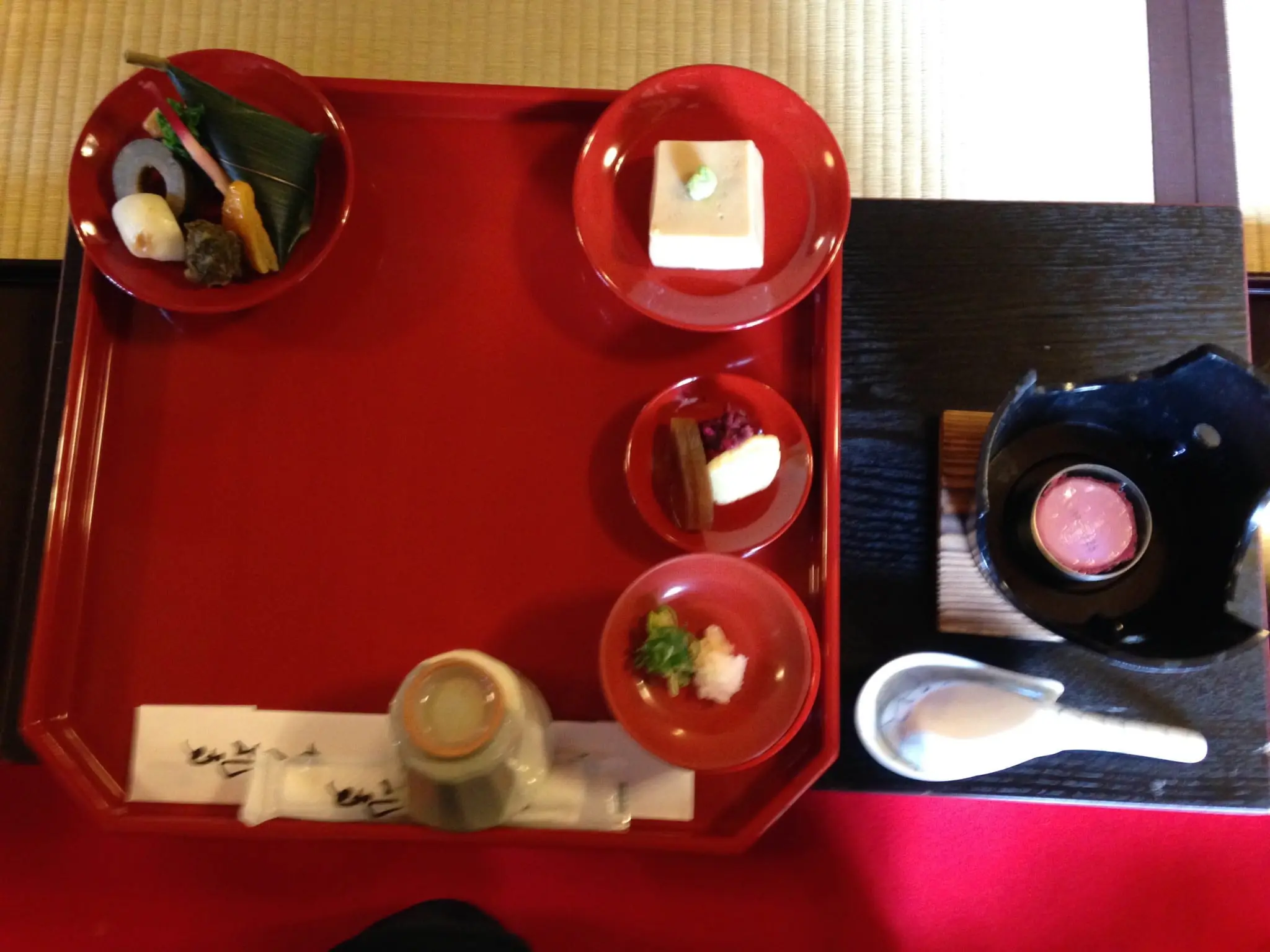
Shigetsu. Photo credit: Laura Goldman.
Even better, but more expensive, are a couple of restaurants near or in temple complexes elsewhere in the city. These places were limited to the monks who enjoyed their extraordinary, multi-course kaiseki meals on holidays, and nowadays ordinary people can have what amounts to a religious experience on the plate.
Reservations are a must, and don’t expect anyone to speak English once you’re seated, shoeless, on tatami mats. But if you order a set menu in advance—perhaps with the help of a hotel concierge—the food will arrive with lots of smiles, bows, and excitement, but few words.
Ajiro
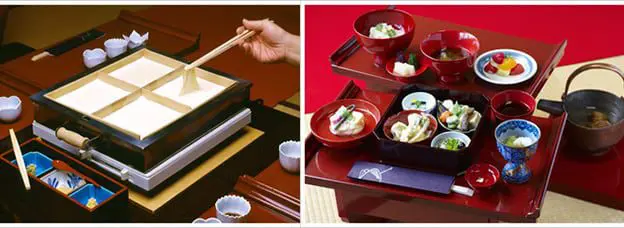
Image Source: Ajiro
Ajiro, a one star Michelin restaurant, is among the best. The name, Ajiro, refers to the conical hats worn by Buddhist monks.
Far from the city center, and located in what amounts to someone’s home, this classic, old school haunt, which was opened in 1962 by Yoshitaka Senoo, offers long lunches or dinners that embrace the cooking rules established by Dogen in the 13th century.
That means shojin-ryori: five flavors, five colors, and five cooking methods, and the result is so tasty and filling that you may feel as if you are having a Zen moment.
Set lunches are from ¥3,240-10,800 and dinners are from ¥6,480-10,800 (exclusive of drinks and a 10% service charge).
Shigetsu
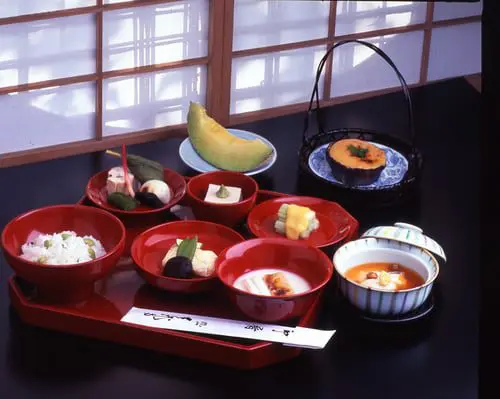
Image Source: Shigetsu
Shigetsu is one of the most famous shojin ryori (Zen cooking) restaurants in Japan. Located within the Tenryu-ji Temple complex (a World Heritage Site), this restaurant is a perfect place to dine after visiting the shrines, gardens, and bamboo forest within.
Despite its location within a temple compound, Shigetsu is a bigger restaurant than Ajiro, and has an international crowd as well as Japanese.
There are three set lunch menus: Yuki (snow) for ¥3000; Tsuki (moon) for ¥5000; and, Hana (flower) for ¥7000. http://www.tenryuji.com/en/shigetsu/
In Tokyo, there are many traditional as well as modern Japanese vegetarian restaurants which draw upon the shojin ryori tradition of presentation, flavor, and cooking methods.
Itosho
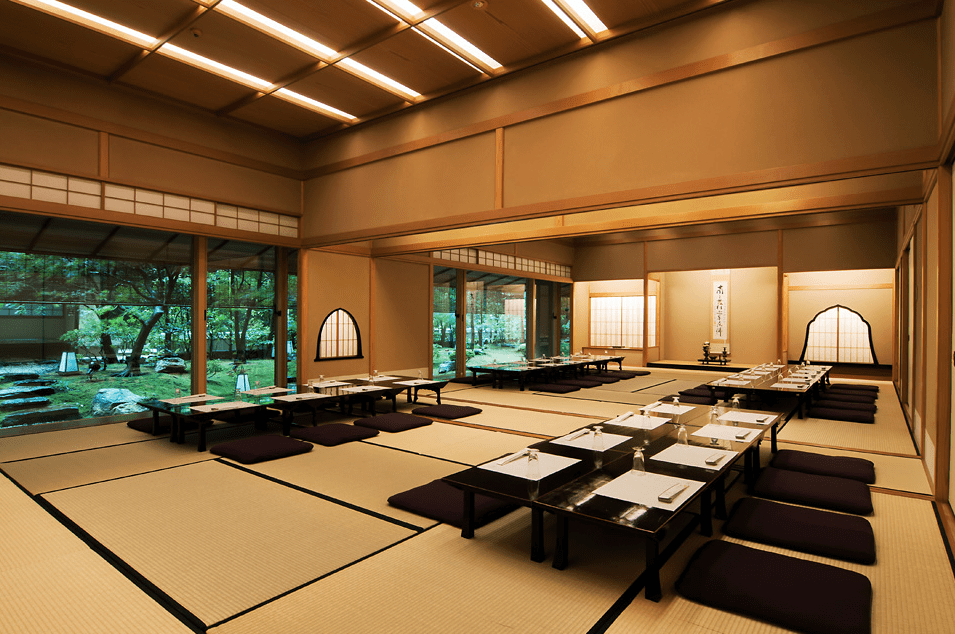
Image Source: Itosho
Itosho is a nearly impossible-to-find old school haunt in the Azabu-Juban neighborhood of Tokyo. The one star Michelin spot has been offering vegan dishes for over thirty years. The chef was written up in The New York Times in the late 1990’s by Elizabeth Andoh, the great Tokyo cookbook writer, and he has numerous dishes that have helped to establish his reputation. Chief among them is shojin-age, a tempura that places little bits of mochi on the crust of what is being fried.
Lunch is from ¥6,000, dinner from ¥8,000, and no credit cards are accepted. 03-3454–6538
Finally, have a look at Daigo. Chef Daisuke Nomura is in charge of the kitchen of this two-star shojin ryori restaurant that has attracted an international following. His brother Nomura is the office manager, his brother Yusuke is the general manager. Their mother and father established the enterprise in 1950.
The meal here is formal and very high end. Prices are from ¥10,000 to ¥19,000. http://www.atago-daigo.jp/en/
Dining at Japanese vegetarian restaurants may lead to rethinking what a good meal can be about.
You will be almost guaranteed to think differently about how remarkable vegetables can taste.


